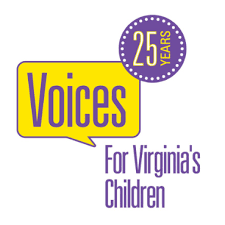How Families May Receive Accessible Child Care
Even before the COVID-19 pandemic created a new reality, there were several issues within the child care industry that impacted families, especially for communities of color. Fortunately, there are advocacy organizations such as Voices for Virginia’s Children who are working diligently to ensure that families can have access to affordable child care. Recently, Chief Policy Officer Emily Griffey met with the PW Perspective to discuss House Bill 2206, which is the legislation that was designed to create a new short-term eligibility category for parents seeking financial assistance to afford child care.
Introduced by Speaker of the House Eileen Filler-Corn, the bill was passed unanimously in February through the House of Delegates as well as the Senate Education, Health & Finance committees. Currently, the bill has been sent to Governor Ralph Northam’s desk. If signed, it would provide the following benefits for families looking to obtain child care:
- Higher income eligibility limits ($60,000/yr 2 person, $74,000/yr 3 person & $89,000/yr 4 person) when a family has at least one child under age 5, not yet in kindergarten
- Parents are eligible to apply for care if they are looking for a job
- Eliminates child support enforcement requirement (this is a permanent change that was recently added)
- Providers must be approved subsidy vendor and will be paid at current rate
Griffey spoke about the benefits of this plan and how it will provide much needed relief to both the families and vendors, and why it needs to be supported.
“It (HB2206) will expand the eligibility for child care and also financial assistance by increasing the income limit. The income limit will be at 85% of the state medium or $79,000 annually for a family of four,” said Griffey. “This will be a great help because it will provide an opportunity to families that are looking for child care assistance while looking for employment.”
“Another advantage is that it benefits families of color, especially children 64% of children enrolled in child care last year were Black. Hopefully it will increase enrollment.”
One of the aforementioned proposals in the bill is that it removes the barrier of a parent having to participate in the child support enforcement. “For many years that has been in place, said Griffey, “so once local social service departments were asked to participate, they didn’t want to harm relationships they had with non-custodial parental rights. We have advocated with state and local administrations to reverse the policy for many years.”
She also emphasized how the bill provides economic benefits. “Child care can be a barrier because it’s so expensive, in some cases it can be upwards of $14,000 a year. Families are often thinking, how much do I have to give up to have child care?”
“What this will do is take the burden off from returning to work. The assistance for child care has gone up so its value is highly significant. It’s a great deal for families for those parents looking back to work.”
As for those parents who are searching for participating facilities, “We ask for parents to begin looking for those programs that are working with the extended child care program,” said Griffey. “Virginia received an additional $203 million for child care, so the assistance is coming for additional funds for there, and they’re looking for the next (President) Biden assistance bill which involves up to $800 million for child care.”
Griffey also discussed how this could change the way child care systems operate going forward. “We are looking to make it easier for parents to have affordable child care, and not match it with them having to be employed.” (Senator Jennifer) McClellan’s House Bill 1316 looked at how we fund the system and how we pay providers in the future. That element alone are the types of things we want in place.”
Currently HB2206 has been sent to the Governor’s desk for signature.



